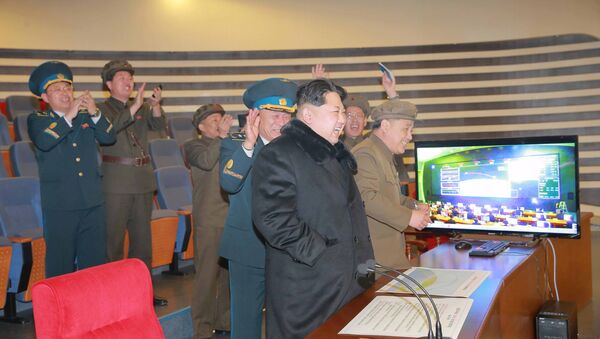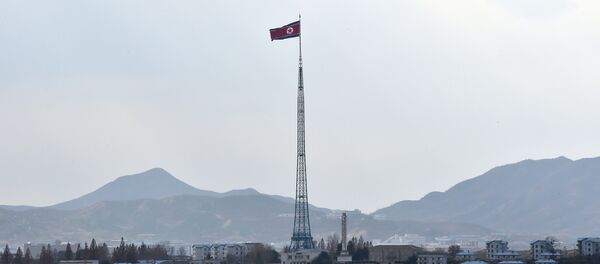Hyon Kwang II, director of the scientific research department of the National Aerospace Development Administration, stated that the Democratic Republic of North Korea (DPRK) plans to launch satellites into orbit by 2020, regardless of international sanctions.
"Even though the US and its allies try to block our space development, our aerospace scientists will conquer space and definitely plant the flag of the DPRK on the moon. Our country has started to accomplish our plan and we have started to gain a lot of successes," he said, adding, "No matter what anyone thinks, our country will launch more satellites."
DPRK President Kim Jong Un ordered a five-year plan for the country, and Hyon confirmed that the plan includes launching observational satellites into Earth orbit, "to solve communications problems by developing geostationary satellites." If successful, this project would be the DPRK’s first geostationary communication satellite. Hyon explained, "All of this work will be the basis for the flight to the moon."
He added that the nation intends "to do manned spaceflight and scientific experiments in space, make a flight to the moon and moon exploration, and also exploration to other planets."
North Korea launched its most recent satellite on February 7. The Kwangmyongsong 4, or Brilliant Star 4, made its way into orbit just one month after the country purportedly conducted its first hydrogen-bomb test. Nuclear tests in the DPRK have obvious military applications, and are banned by the United Nations. The recent tests have resulted in increased sanctions against the country. Hyon called the sanctions "ridiculous."
Jonathan McDowell, an astrophysicist at the Harvard-Smithsonian Center for Astrophysics, who keeps a comprehensive blog detailing international satellites and launches, remarked that "It would be a significant increase in technology, not one that is beyond them, but you have to debug each bit."
As the US made its first lunar flyby only six months after launching its first satellite, and Russia did the same a year and a half after launching its first satellites, McDowell suggested that, "…it's not ridiculous to attempt a moon mission early in your space program, given their low flight rate of one mission every few years. I think it is hard to see them succeeding in this in the next five years, but possible to see them attempting it."
Markus Schiller, an expert on North Korean missiles, said that launching a geostationary satellite would be a more viable undertaking for the country than a moon landing. "Judging from what I have seen so far with their space program, it will take North Korea about a decade or more to get to lunar orbit, at best," he said.





